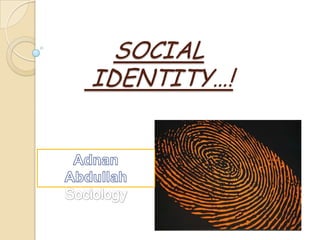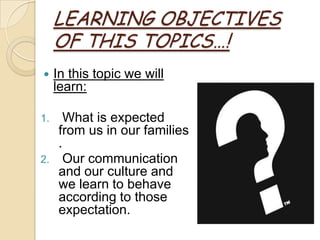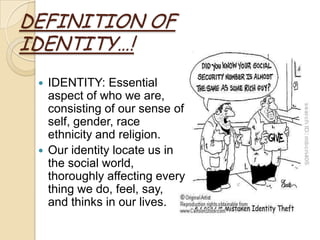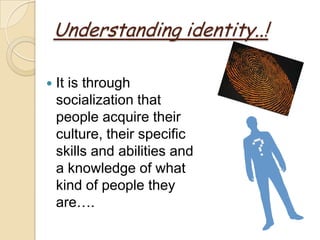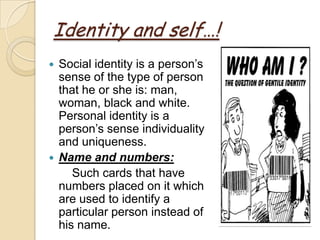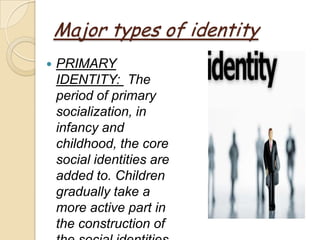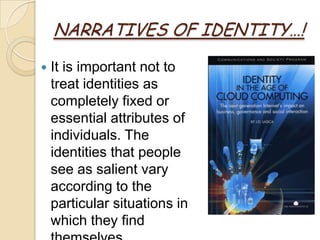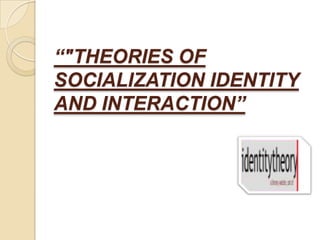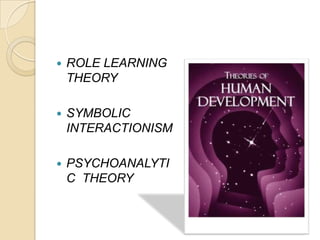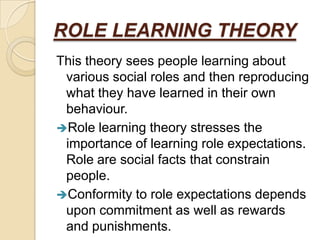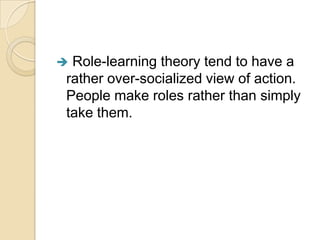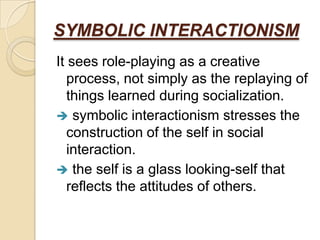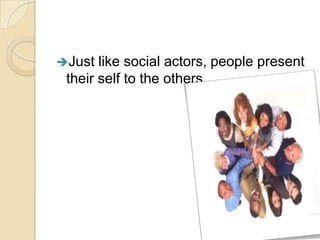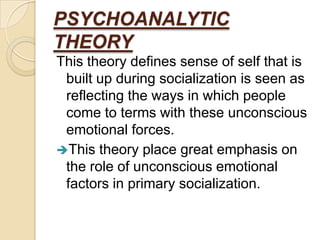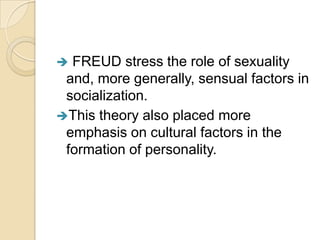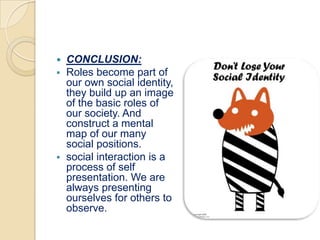This document discusses social identity and socialization. It defines identity as aspects of oneself including gender, race, ethnicity and religion. People acquire identity through socialization, learning expectations from their family and culture. There are primary identities formed in childhood and secondary identities like occupation. Different theories view identity formation, such as role learning theory focusing on learning social roles, symbolic interactionism seeing it as a creative process, and psychoanalytic theory emphasizing unconscious factors. In conclusion, roles become part of social identity and interaction involves self-presentation to others.
